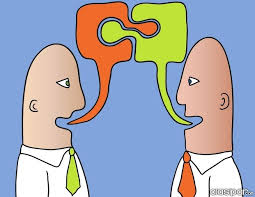Linguistics and Philosophy.Association between philosophy and language and linguistics has indeed been historically very long. In fact, it was the philosophers who first of all speculated on language. Plato’s Dialogues have explicit reference to language. In the field of semantics, philosophy has contributed tremendous insight to the linguists. The structural linguists ignored meaning because they thought it to be a subject of philosophy.

Philosophy is the oldest science studied by humans. In its development, philosophy that cannot be separated from the discussion of language, gave birth to the philosophy of language. The philosophy of language is growing because language has a subjective function that describes the experience of human life
Linguistics and Philosophy;5 Secrets You Must Know.

Yet there are deep-rooted differences between philosophy and linguistics. The philosopher’s concern is with ‘the uses of language for certain purposes -that are common to many communities’ he is not interested in the detailed differences between languages; the linguist’s concern is with ‘the details of each language for its own sake’, and he evolves and evaluates theories primarily to deal with particular languages.
The linguist is particularly interested in the formal structuring of the sentences of a language, the philosopher is interested in the logical structure and the inferential possibilities of the propositions they express irrespective of the grammar of particular language. Hence both these disciplines are getting remote from each other these days.
The philosophy of language itself has an important role in the development of linguistics because the philosophy of language is knowledge and intellectual investigation of the nature of language, its causes, origins, and laws.
So the subject discussed in the philosophy of language is more focused on how an expression of language has meaning so that philosophical analysis is no longer considered to be based on technical logic, but is based on the use of ordinary language.
The philosophy of language analysis is a typical method for explaining, describing, and testing the truth of philosophical expressions (Kaelan, 1998: 84). Experts divide this analysis philosophy into three schools, namely:
Logical positivism: this school is characterized by a positive evaluation of science and the scientific method. There are five assumptions that form the basis of this school, namely objective reality, reductionism, value-free assumptions, determinism, and the logic of empiricism.
Linguistics and Philosophy
Linguistics and philosophy have long had a deep and intricate relationship. Both disciplines explore fundamental questions about meaning, truth, logic, and the nature of human understanding. Here’s an overview of the interplay between the two:
- Philosophy of Language: This branch of philosophy specifically deals with topics related to language, such as:
- Meaning: What does it mean for words or sentences to have meaning? How do words refer to objects or concepts in the world?
- Truth: What is truth? How can sentences be true or false?
- Reference: How do words like proper names refer to entities in the world? What’s the difference between a word’s sense and its reference?
- Speech Acts: How do people perform actions (like promising or asking) using language?
- Logic: Logic is both a branch of philosophy and a linguistic tool. Philosophers use logic to clarify or investigate arguments, while linguists might use it to understand the structure of sentences or the relationship between meaning and truth.
- Semantics: While semantics in linguistics deals with the meaning of words, phrases, and sentences in languages, philosophical semantics often concerns broader issues like the nature of meaning, reference, and truth.
- Pragmatics: Philosophers are interested in how context influences our interpretation of statements. This overlaps with linguistic pragmatics, which studies how people understand meaning in context.
- Cognitive Science and Philosophy of Mind: Both fields ask questions about the nature of thought, consciousness, and the relationship between mind and language. For example, is language necessary for thought? How does language shape our perception and understanding of the world?
Let’s compile this information into a tabular format:
| Aspect | Linguistics | Philosophy |
|---|---|---|
| Definition | The scientific study of language, including its structure, use, and acquisition. | The study of fundamental questions about existence, knowledge, values, reason, mind, and language. |
| Main Focus | Language structure (syntax, semantics, phonetics, etc.), language use, sociolinguistics, psycholinguistics. | Ethics, metaphysics, logic, epistemology, aesthetics, philosophy of mind. |
| Methodologies | Empirical research, linguistic fieldwork, computational modeling. | Critical analysis, logical argumentation, conceptual clarification. |
| Key Theories/Concepts | Transformational-generative grammar, phoneme theory, speech act theory. | Existentialism, utilitarianism, categorical imperative, theory of forms. |
| Historical Development | Evolved from philology in the 19th century, with significant developments in the 20th century (e.g., Chomskyan linguistics). | Dates back to ancient Greece with figures like Plato and Aristotle, has evolved through various epochs (e.g., Medieval, Enlightenment). |
| Notable Figures | Noam Chomsky, Ferdinand de Saussure, Roman Jakobson. | Plato, Aristotle, Immanuel Kant, Friedrich Nietzsche, Simone de Beauvoir. |
| Applications | Language education, computational linguistics, forensic linguistics. | Ethics in public policy, legal theory, critical thinking in education. |
| Interdisciplinary Connections | Overlaps with psychology, anthropology, computer science (AI). | Influences and is influenced by science, literature, politics, and art. |
This table offers a comprehensive overview, illustrating the distinct yet sometimes overlapping areas of Linguistics and Philosophy.
